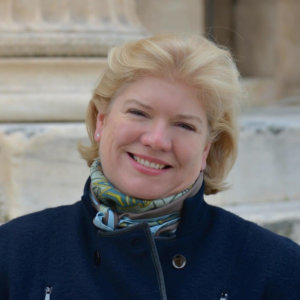
This is an abridged version of a longer article courtesy of the International Family Offices Journal.
There is a revolution unfolding on the balance sheets of the world’s corporations that holds a lesson for families with wealth: the explosion of intangible assets. This phenomenon is exemplified by companies like Uber, which has the largest fleet of cars for hire, and Airbnb, which boasts more rooms than the largest hotel chains. In both these cases, the cars and rooms are not owned by the company providing them to end users.
Intangible assets can have some very real benefits. First, they are easily scalable. For example, Uber can increase its fleet size around the globe with minimal capital investment. Secondly, intangible assets benefit from synergies with other intangibles. Uber integrates multiple levels of intangible innovation including GPS, cloud storage, big data and mobile apps to provide its service.
On the other hand, intangible assets pose some serious challenges as well:
- In accounting parlance, intangibles are sunk costs, meaning that when a company winds up its operations or files for bankruptcy, there is rarely any residual value to recover. Intangible assets simply evaporate.
- Intangibles are hard to measure. Some economists are concerned that the world’s economic metrics, like gross domestic product, may not effectively capture the value of intangibles.
- Intangibles are hard to protect. They cannot be locked up or chained down. They can walk out the door or be coopted by others.
Cognizant of their importance to the next economy, the corporate world has turned its attention to the challenges of managing, protecting and growing these amorphous assets. Companies recognise that a significant portion of their intangible assets either exists in, or are connected to, their employees – their human capital. In response to this trend, the corporate world has introduced the role of chief learning officer (CLO). The CLO manages a company’s intangible, employee-based assets through the developmental growth of its people. This involves coaching, engagement, mentoring and leadership development. All of this is centred around the alignment of individual and corporate purpose. In this CLO role and its function lie some important lessons for families with wealth.
1. Embrace your Intangibles
Acknowledge the importance and magnitude of the human capital in your family and nurture it. The scale and speed of change occurring in our world require family members who can innovate, make agile decisions and rebound in adversity. Identify someone to take on the role of your family’s CLO, which may require a search beyond your current stable of family office staff and professional advisers.
2. Fund your Intangibles
Give this work a capital budget line in your annual planning; set targets and measure progress. As a benchmark, consider what the family pays for custody of its financial assets or management of its portfolio investments. Consider allocating a portion of your estate to endow this work for future generations.
3. Measure your Intangibles
While intangible assets do not lend themselves to being easily quantified, there are a variety of tools available to help get a picture of your family’s human assets. Assessments help in the journey of self-discovery and equip the family group with the vocabulary and concepts to communicate about themselves. Once the family has taken an initial measure of its human capital and created a family dashboard, the process of ongoing development can begin.
4. Grow your Intangibles – Individually
Providing personal assessments, group surveys and access to coaches and mentors forms a starting point from which lifelong learning and development can begin. Tailoring development plans honours the diversity of each person and helps the family see the unique gifts and contributions each member makes to the whole. Without a doubt, those who think differently and ‘see’ in new ways will be more valuable than ever in today’s rapidly changing and uncertain world.
5. Grow your Intangibles – Collectively
Collaboration and collective decision-making are vital skills in families where lives are tied together by jointly-owned assets and a common history. With family wealth held in trusts, holding structures, operating companies and real estate, family members with naturally differing needs and perspectives must find ways to work together towards agreed actions. So, while family members are working on their individual development, the family group should be growing its capacity to function as well.
6. Protect your Intangibles
A family’s most sophisticated estate and tax planning can be undone by breakdowns between family members due to lack of trust and inability to communicate. Protecting a family from these existential risks is critical. Families need to understand conflict and learn how to navigate flare-ups.
7. Create an Empowering Environment for your Intangibles
To grow its human capital, a family needs to provide space to nurture its members’ curiosity and inspire exploration, which means embracing a learning culture that incentivises and rewards innovation and thinking differently. A learning centric family relies less on what its members know and understand and more on their capacity to quickly assimilate new skills and knowledge and to think in new ways. Learning promotes innovation and agile thinking.
8. Foster Synergies between your Intangibles
Intangible assets are catalysed by synergies, so families should seek to create communities where ideas and people can interact. Network with curious, like-minded families and share learning, mentoring and support. Encourage inclusivity and diversity. It is predicted that social networks will be more valuable in the new economy than specialist knowledge. Family members should join (or even create their own) developmental networks with people from diverse disciplines and backgrounds, extending networks to challenge existing perspectives. Break down silos and remove barriers to your collaboration. Organisations are becoming flatter, non-hierarchical and flexible – families should too.
9. Practice
Over time, families encounter a predictable series of challenges including the natural expansion of the family, the transition of leadership in a business, the break-up of marriages and the death of a wealth creator. These periods of change require a family to call on its decision-making capacity. Families are well served to build their capacity to handle change and make decisions and then practise these in controlled and safe environments before they are confronted with more complex transitions.
10. Grow the Advisers Serving your Family
With significant wealth comes complexity, and managing this complexity calls for a community of professionals and advisers with a variety of specialist skills and expertise. To navigate the uncertainty and change ahead, advisers are a necessity.
How many of the advisers to your family are skilled at addressing qualitative developmental goals? It is important that a family is served by advisers who likewise embrace the primacy of human (intangible) capital and embed that perspective in their work. Consider how well your advisers are stretching themselves. It is much easier to grow the family’s human capital if it is surrounded by advisers with the same commitment to personal growth and who are pursuing their own life-long learning journey.
Conclusion
These ten lessons are not typically associated with family offices or the matrix of advisers traditionally arrayed around families with significant wealth. To ensure their sustainability, however, families must refocus their system’s attention away from the gravitational pull of the tangible, financial wealth and towards the family’s intangible, human wealth.

Mary Duke is a member of the Family Office Journal’s editorial board and an internationally recognised adviser to families navigating the complexities of substantial wealth. She is known for her deep expertise on the impact of trusts on families and her work in generational transition in family enterprises. She has an excellent track record helping family members collaborate more effectively and helping them leverage the effective use of governance in their families and their businesses.
Sources:
Jonathan Haskel and Stian Westlake, Capitalism without Capital – The Rise of the Intangible Economy (Princeton University Press, 2018).
Bloomberg Press.
R William and V Preisser, Preparing Heirs: Five Steps to a Successful Transition of Family Wealth and Values, (Robert D Reed Publishers, 2003).









